Board of Governor's Award Recipient for Excellence in Teaching
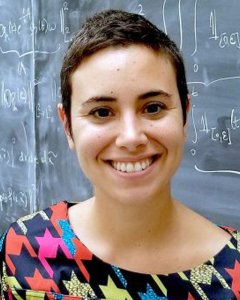 Yaiza Canzani
Yaiza CanzaniYaiza Canzani, Professor, Department of Mathematics
“Beautiful board work.” Among other compliments paid to Yaiza Canzani by her chair in her nomination letter can be found this surprising and slightly odd claim. When members of the committee visited her class, we saw what he meant. Dr. Canzani holds four pieces of chalk in her hand while she is teaching—each of a different color. As she explains complex math concepts to her students, she produces formulae and diagrams on her board that can only be described as works of art. In and of itself beautiful math diagrams might not seem notable, but in the classroom it is quite clear that Dr. Canzani’s “beautiful board work” is emblematic of the inviting, engaging, and truly artistic nature of her pedagogy. To watch her teach is to experience the beauty of what a classroom can be. Sparks fly. The ideas are fascinating, and each and every student is deeply engaged. Indeed, each clearly feels like an important member of a collective intellectual endeavor. One committee member noted the “audible gasps” when students grasped what she was saying; another noted the student who put his fingers to his head and then raised his arms into the air and said “mind blown” after she showed them a new concept. As her chair puts it, “she’s the best; it’s that simple.” He noted as well that she is “firing on all cylinders”: stepping up for administrative service, performing world-class research, a co-PI on a 2.5-million-dollar grant used to create new classes and provide other resources for undergraduates—all the while managing to teach beautiful classes. The particular class Dr. Canzani teaches is notorious for being one of the hardest ones on campus, and still she gets incredible evaluations. Her chair notes that in a class of 37 evaluations, 28 of them wrote long explanations as to why she should win a teaching award. One of them said “UNC is a better school because she is here.” And it’s true: Carolina has many, many excellent teachers. But Dr. Canzani’s work with her students is, like her board work, truly artful.
Mentor Award for Lifetime Achievement
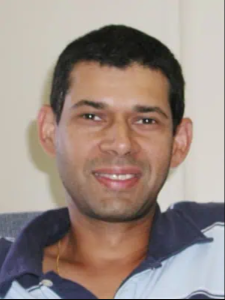 Sudhanshu (Ashu) Handa
Sudhanshu (Ashu) HandaSudhanshu (Ashu) Handa, Professor of Public Policy
A professor since 2003, Dr. Handa embodies the spirit of the Lifetime Mentorship Award. With a career spanning over three decades and multiple continents, Dr. Handa has profoundly impacted students, colleagues, and policymakers through his empathetic, intentional, and unwavering support. His mentees describe him as an anchor during challenging times, offering wise counsel, constructive feedback, and encouragement. Dr. Handa’s mentorship extends beyond academic boundaries, connecting students to global opportunities and emphasizing a holistic approach to life and career. His legacy includes guiding students from diverse backgrounds and fostering connections that continue to expand UNC’s global presence. Nominations for Dr. Handa reflect admiration for his unmatched dedication: a mentor who remains a steadfast advocate long after graduation. His influence has left an indelible mark on mentees, inspiring their growth and enriching their lives.
Distinguished Teaching Award for Post-Baccalureate Instruction
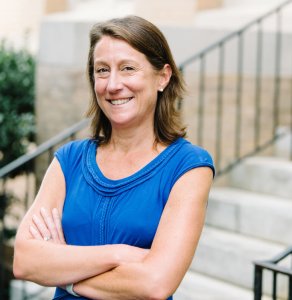 Cheryl Bolick
Cheryl BolickCheryl Bolick, Associate Professor, School of Education
Dr. Bolick’s current and former students and colleagues were overwhelming in their support of her nomination for this award. Whether she is using place-based learning approaches to train social studies educators or exploring the wilderness with her students on an Outward Bound trip, Dr. Bolick’s empathy, patience, and warmth provide a model of inclusive excellence that sticks with her students throughout their careers. Her teaching goes beyond content delivery, as she expertly integrates experiential learning, community engagement, and reflective practices to create an atmosphere where students feel valued and empowered. Her focus on social justice, particularly teaching counter-narratives and uplifting marginalized voices, inspires future educators to challenge injustice through their own teaching practices.
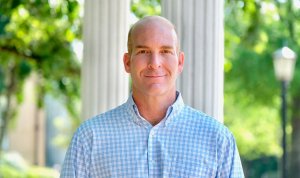 Todd Cherner
Todd ChernerTodd Cherner, Clinical Associate Professor, School of Education
The award committee was very impressed with Dr. Cherner’s exceptional teaching, mentorship, and dedication to student success. He fosters an active learning environment where students engage in hands-on projects, collaborate with industry professionals, and tackle real-world challenges. Dr. Cherner’s commitment to individual students is evident in his personalized guidance, from connecting them to internships to helping them navigate their professional paths. His inclusive approach creates a sense of belonging for all students, regardless of background, and he tailors his support to meet their diverse needs. Students consistently praise his ability to inspire and empower them, equipping them with the skills, confidence, and connections they need to succeed in the field of educational technology. His passion for teaching, innovative methods, and deep care for his students make him an exemplary educator and mentor, deserving of this prestigious recognition.
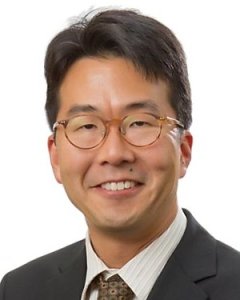 John Min
John MinDr. John Min, School of Medicine
Dr. Min’s students and colleagues praised his exceptional dedication to teaching and mentorship. His long-term commitment to a small group of students over 18 months allows him to have a profound impact on their development as clinicians, not just academically but also professionally and personally. His teaching materials reflect a focus on the holistic development of students, fostering skills such as empathy, self-reflection, and professionalism. Student evaluations and colleague references consistently highlight his supportive teaching style, dedication to helping struggling students, and his ability to create an environment where complex concepts are both understood and appreciated. Furthermore, Dr. Min’s mentorship extends beyond the classroom, as he shares his expertise with newer instructors and provides valuable clinical experience to his students. His genuine passion for teaching and his ability to inspire students make him an exemplary candidate for this award.
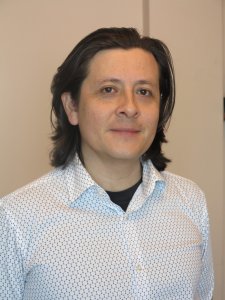 Raúl Necochea
Raúl NecocheaRaúl Necochea, School of Medicine
Dr. Necochea brings an innovative and interdisciplinary approach to teaching, particularly in the integration of humanities, social sciences, and medicine. His work with Latin American students to promote global health equity and his leadership of an oral history project documenting the experiences of the first African American School of Medicine alumni at UNC exemplify his unique teaching methods. Dr. Necochea’s high-quality teaching materials, thoughtful assignments, and well-designed lesson plans provide students with a rich, transformative educational experience. His commitment to fostering a supportive learning environment, where students feel encouraged to engage and share diverse perspectives, has had a lasting impact on his students and the larger curriculum. Additionally, his ongoing contributions to curriculum development in the medical school further underscore his exceptional dedication to education.
Chapman Family Teaching Awards
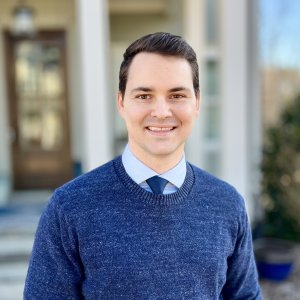 Joshua Beaver
Joshua BeaverJoshua Beaver, Teaching Associate Professor, Department of Chemistry
A recent student in his organic chemistry class observed that, “despite the difficulty of the material and size of the class, Professor Beaver goes out of his way to introduce himself to every student and get to know them and their individual goals.” Another student agreed, adding, “Dr. Beaver’s passion for teaching is contagious, which helps to give students a passion for learning.” Admired by his colleagues in the Chemistry Department for helping to redesign organic chemistry classes to create more active learning, Professor Beaver will use funds from his Chapman Award to “develop and implement a data-driven, targeted intervention model designed to improve equity and student performance in the organic chemistry sequence at UNC-Chapel Hill.”
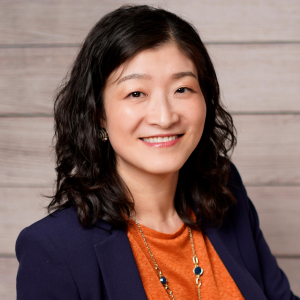 Lini Ge Polin
Lini Ge PolinLini Ge Polin, Teaching Associate Professor,Asian & Middle Eastern Studies
Chinese is a hard language to teach, yet Professor Polin’s Chinese-language courses are not only routinely described by students as “excellent,” but also as “fun,” “engaging,” and even “life changing.” Dr. Polin is currently the statewide President of the Chinese Language Teachers Association. Connecting language proficiency with the authentic cultural context from which the language emerges, Professor Polin’s students learn the language from sources as diverse as a Chinese property-rental advertisement, a YouTube video made by a Chinese student comparing college dorms in China and the US, and excerpts from Chinese movies. Little surprise then, that Professor Polin will use funds from her Chapman Award to continue and expand her already groundbreaking work on using service-oriented projects through which students learning advanced Chinese work with native Chinese speakers in the community with limited English proficiency – and measuring the totality of positive effects such a program can offer to both the students and community members, both language-proficiency-wise and otherwise.
 Shimul Melwani
Shimul MelwaniShimul Melwani, Professor, Kenan-Flagler Business School
Despite her administrative duties as the Associate Dean for the Undergraduate Business Program at the Kenan-Flagler Business School, Professor Melwani was described by one of the students in her introductory course on Business Topics for Wicked Problems as “my favorite professor ever,” and by others as “amazing” and “incredible.” Professor Melwani’s approach to teaching is to make it a “transformative experience that goes far beyond the classroom walls.” Thus, it is unsurprising that Professor Melwani plans to use funds from her Chapman Award not only to dramatically expand to all incoming business undergraduate majors the introductory Leadership course now offered only to those “pre-admitted” to the program, but also opportunities for undergraduate students to develop personal leadership skills through service projects beyond the classroom.
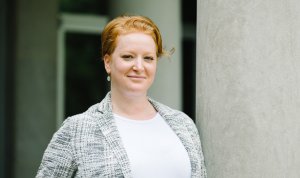 Dana Riger
Dana RigerDana Riger, Clinical Assistant Professor, School of Education
Professor Riger has already won teaching awards for courses as varied as “Family Systems and Policy,” “Sexuality and Identity,” and “Adolescent and Adult Development,” with Professor Riger’s reputation as “one of the best teachers” at the School of Education routinely echoed by her colleagues. Students in her classes most often simply describe Professor Riger as “awesome.” Yet accolades such as these mask the full range of Professor Riger’s talents. Setting aside the six years she spent as an “anti-money-laundering” investigator, Professor Riger has become one of the University’s go-to experts on the positive and negative educational aspects of AI. Professor Riger plans to use funds from her Chapman Award on an especially ambitious study connecting “how learning theories and pedagogical models can inform and guide the development of GPTs.”
Tanner Award for Excellence in Undergraduate Teaching
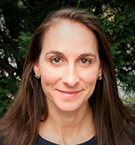 Vicki Chanon
Vicki ChanonDr. Vicki Chanon, Teaching Associate Professor, Department of Psychology and Neuroscience
Dr. Chanon is an extraordinary educator whose innovative and inclusive teaching practices have left a lasting impact on her students. Over her years at UNC, Dr. Chanon has demonstrated an exceptional commitment to fostering a welcoming and engaging learning environment, even in large classes of 120+ students. Students consistently highlight her ability to make complex material accessible and her passion for making each lecture memorable.
Dr. Chanon’s teaching incorporates creative, hands-on activities that bring psychological and neuroscientific concepts to life. From using taste-altering powders to explore the gustatory system to simulating neuronal networks with myelin sheaths, she captivates students’ attention and transforms abstract concepts into tangible learning experiences. As one student shared, “You never know what you’re going to do next in her class, and that excitement makes learning unforgettable.” Another student noted, “How could you not have fun while you learned about the ocular pathway when the class format allows for you and your peers to test one another on eye perception?”
Inclusivity is at the heart of Dr. Chanon’s pedagogy. She learns every student’s name within weeks, even in her largest classes, and uses active learning strategies like think-pair-share, Poll Everywhere, and guided notes to ensure every student has an equal opportunity to participate. Her flexible and supportive approach accommodates diverse student needs, fostering a sense of belonging and empowerment in the classroom. Additionally, her integration of current cognitive psychology research into her methods, including active recall and low-stakes assessments, enables students to develop a deep understanding of the material while minimizing stress.
Dr. Chanon’s enthusiasm for her field is infectious. Her ability to blend interactive discussions with cutting-edge research inspires students not only to master the material but also to explore it further on their own. As one student remarked, “Her passion for psychology is contagious, and her lectures are so engaging that I found myself replaying her comments in my head while answering exam questions.”
Due to her unwavering dedication to student learning and her remarkable contributions to the intellectual community at UNC-Chapel Hill, it is with great pleasure that the University Teaching Awards Committee presents Dr. Vicki Chanon with the Tanner Award for Excellence in Undergraduate Teaching.
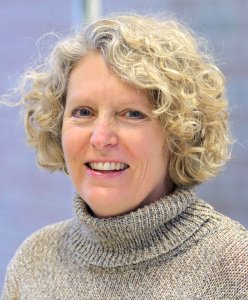 Nita Eskew
Nita EskewDr. Nita Eskew, Teaching Associate Professor, Department of Chemistry
Dr. Eskew is appreciated and admired by her colleagues and revered by her students. Dr. Eskew utilizes a range of dynamic and engaging teaching styles, combines interactive lectures with interactive workshops, and fosters a welcoming and supportive environment for students in and beyond the classroom, including office hours and weekly review sessions. She has also been credited by colleagues as making significant, even transformative contributions to the department’s curriculum and helping to restructure required courses to be more interactive.
This year Dr. Eskew received an overwhelming number of nominations from students. They laud her commitment, her accessibility, and her ability to teach complex subjects in ways that benefit students in subsequent courses as well. One student marveled at Dr. Eskew’s “way of explaining complex concepts thoroughly while also challenging us to apply what we learned in ways outside of organic chemistry.” Another emphasized how accommodating she was to all students by fostering a classroom “environment conducive to a slew of learning types.”
Students also noted that Dr. Eskew demonstrated genuine care for them beyond the classroom. “She went above and beyond to ensure all types of learners felt included-whether through class discussions, extra resources, or one-on-one office hours.” Several noted that she was “very welcoming in office hours,” not only willing to provide assistance with class material and assignments, but also to discuss graduate school and pathways after graduating, often “provid[ing] invaluable guidance” as well as writing letters of recommendation.
The care and respect with which Dr. Eskew treats her students is abundantly clear. One student noted that she “made sure that students felt comfortable making mistakes in class, and another explained that “[w]hat stood out most to me was how kind and respectful she was in her teaching style.” Dr. Eskew was credited by another student for “welcom[ing] all questions and never judg[ing] someone based on what they know.” And yet another student insisting that they have “never felt so cared for by a professor” as they have by Dr. Eskew.
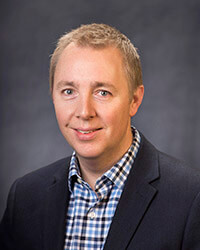
Corey Johnson
Corey Johnson, Teaching Professor, Department of Biology
Dr. Johnson has been on the faculty at UNC since 2007. According to the Chair of the Biology Department, Dr. Johnson creates a welcoming environment that supports learning for his students through his leadership, his handling of the course material, and his mastery of pedagogy and active-learning practices.
Dr. Johnson received 18 nominations for a teaching award. Here are excerpts of student praise:
Extremely approachable and friendly. He made learning accessible and fun with his engaging slides and witty humor. He was extremely knowledgeable but brought the hefty topics down to a level thar beginners in the field could understand.
One of the most welcoming, warm professors I have had at UNC. He truly has a passion for teaching, and this is reflected in every one of his lectures. He is also very eager to help students and does so by providing a multitude of study resources, helpful tips, and practice assignments.
Not only a phenomenal professor in the classroom, but a caring and compassionate human being who cared about the learning and development of every student.
Inspired me to continue my intellectual growth because before his class I was dreading taking anatomy and physiology. However, his teaching style and the way he supports his students made me change my view on the subject.
Very committed to his students understanding and grasp of the content.
Introduced me to new potential career paths. He has also made me fall in love with anatomy & physiology as he makes the information so digestible and entertaining.
I can confidently say that Dr. Johnson’s course is one of the few I took as an undergraduate where I retained every single topic I learned. As an alum, I am still able to recall and identify parts of the body and functions of organs since taking his anatomy and physiology lecture and lab course. Dr. Johnson is an extremely accommodating instructor, and he really understands and values the different learning styles of his students.
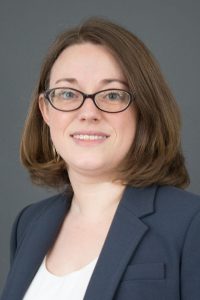 Lucy Martin
Lucy MartinLucy Martin, Associate Professor, Department of Political Science
Professor Lucy Martin is a transformative educator who excels in one of the most challenging teaching roles: training undergraduate students to understand and utilize data in political studies. As an Assistant Professor, Dr. Martin not only accepted this challenge but also revolutionized the Data & Politics course, making it a cornerstone of our undergraduate curriculum.
Dr. Martin’s students consistently praise her as an outstanding teacher who goes above and beyond to help them master concepts they once thought were beyond their reach. Her dedication and methodology help transform students by empowering them and giving them the skills that allow them to realize that they can learn math and statistics.
Dr. Martin’s success stems from an inclusive and challenging approach to teaching. At the core is a belief that quantitative methods for non-STEM majors should be taught in an active learning environment. Her students don’t just learn about data science; they actively engage in it. She spends hours in the learning lab with small groups of her students to help them learn and practice with the material. This foundational work is crucial for enabling students to effectively learn data science within the context of political science. Dr. Martin also has dedicated countless hours to developing clear and accessible slides and lectures that introduce statistical concepts and skills within political science making make complex material comprehensible and engaging. As a student wrote: “Professor Martin was amazing at incorporating a flipped–classroom approach! The R tutorials she created were SO helpful and I truly never enjoyed coding more! She is an amazing professor, explains the course content so well, and really turns a difficult subject matter into a simple concept. Thank you, Professor Martin!”
Beyond the classroom, Dr. Martin and a colleague are co-authoring a textbook that will enable political science departments nationwide to incorporate a Data and Politics course into their programs.
Due to Dr. Martin’s dedication in the classroom, excellence in teaching, and exceptional commitment to developing methodology in her field, it gives the University Teaching Awards Committee great pleasure to present the Tanner Award for Excellence in Undergraduate Teaching to Dr. Lucy Martin.
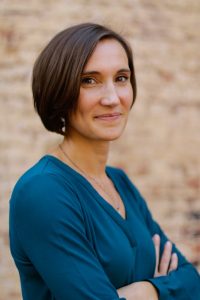 Kym Weed-Buzinski
Kym Weed-BuzinskiDr. Kym Weed-Buzinski, Teaching Assistant Professor and Associate Director of the MA in Literature, Medicine, and Culture
In the five years that Dr. Kym Weed-Buzinski has been a Teaching Assistant Professor and Associate Director of the MA in Literature, Medicine, and Culture program at UNC, she has earned the esteem of her colleagues and students through her excellent teaching, service, and research. Teaching in the medical humanities, where literature, culture, and healthcare intersect, she successfully uses all three to stimulate curiosity, encourage accessibility, and foster collaboration, effectively preparing students to be at the forefront of their fields as scholars.
Dr. Weed-Buzinski’s teaching philosophy and methodology exemplify educational inclusivity in all aspects of her teaching. To create a sense of community, she emphasizes a collaborative approach, creating a welcoming learning environment through a combination of lectures, group work, and discussions. Seemingly small details, like asking each student to say their name before contributing to the discussion, make students feel heard and seen from the very beginning of the semester. These details, combined with using image descriptions, closed captioning, and providing additional materials, reflect her commitment to following a model of universal design where no student is left behind. As one student commented, “You’re incredible, Dr. Weed! You’ve genuinely been one of my favorite professors so far. Everything you’ve done for this class has been so helpful and kind, and I am so glad I’ve been able to take this class of yours!”
Dr. Weed-Buzinski is also highly regarded among her peers as a go-getter who has accomplished a lot in her short time in the department. Among her many notable accomplishments is creating a strong connection between her department and the UNC School of Medicine as the co-director of the HHIVE Lab, a hub of health and humanities activity, since 2019. One colleague stated that “Dr. Weed’s teaching and service have been and are critical to the success of health humanities at UNC.” Dr. Weed also serves as associate director of graduate programs in Literature, Medicine, and Culture, making her an essential part of UNC’s initiatives in the field of health and the humanities.
Due to her exceptional methodology and excellence in teaching it gives the University Teaching Awards Committee great pleasure to present the Tanner Award for Excellence in Undergraduate Teaching to Dr. Kym Weed-Buzinski.
William C. Friday Award for Excellence in Teaching
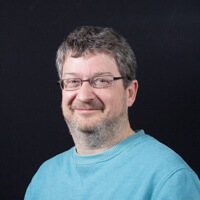 Kenneth Donnelly
Kenneth DonnellyDr. Kenneth Donnelly, Teaching Associate Professor in the Joint Department of Biomedical Engineering
Dr. Donnelly is a transformative educator whose approach prepares students for both academic and professional success. His classroom is more than a space for lectures; it is an incubator for innovation, creativity, and professional growth. One student described their experience in BMME210 Sophomore Design as “the most life-changing class I took. The impact Kenny has had on the arc of my life cannot be overstated.”
Dr. Donnelly’s teaching philosophy blends technical excellence with essential life and professional skills. He fosters an environment where students learn to confidently present their ideas, collaborate effectively, and navigate the complexities of biomedical engineering. Another student remarked that Dr. Donnelly’s classroom was incredibly influential in “its ability to foster life skills, independence, and leadership.” His focus on hands-on, real-world applications ensures that students not only grasp theoretical concepts but are also prepared to excel in the medical device field.
Dr. Donnelly’s impact extends beyond the classroom, including leading transformative global experiences. During a study abroad program in Scotland, he created collaborative environments in makerspaces, allowing students to develop solutions while navigating cultural and logistical challenges. One student noted his ability to adapt quickly, saying, “At the end of the program, three people contracted COVID. Dr. Donnelly acted super quickly to rearrange rooms, reformulate curriculum, reorganize plans, and somehow end the program flawlessly despite the entire plan being obliterated.”
His dedication to continuous improvement is evident in his proactive engagement with student feedback and his commitment to staying current with industry trends. One nomination highlighted his exceptional ability to integrate evolving professional standards into the curriculum, noting, “When students take courses with Dr. Donnelly, they learn more than just engineering content—they learn how to create an inviting and collaborative environment, lead by example, and conduct themselves in a professional medical device development setting.”
Through his tireless efforts, Dr. Donnelly has become a beacon of excellence in teaching, mentorship, and professional preparation. As one student aptly summarized, “He is an incredible treasure to all of his students—past, present, and future.”
J. Carlyle Sitterson Award for Teaching First-Year Students
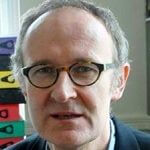 Luc Bovens
Luc BovensLuc Bovens, Professor, Department of Philosophy
Professor Bovens has reimagined how to introduce first-year students to philosophical thinking through his innovative approach to ethics education. By weaving together short stories, current events, and social science research, he creates an accessible gateway to ethical discourse that resonates deeply with students. His innovative approach begins on day one, when students collectively shape their syllabus from his extensive collection of short stories and research papers, setting the tone for a truly collaborative learning experience. Students consistently praise his ability to create an environment where even the most challenging topics become opportunities for growth and understanding. In a testament to his transformative impact, one student reflected, “I truly believe I am a more worldly and complex thinker because of this class.”
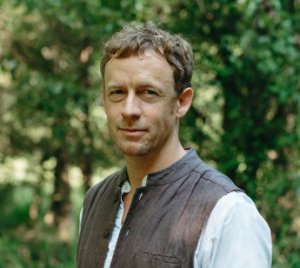 Townsend Middleton
Townsend MiddletonTownsend Middleton, Associate Professor, Department of Anthropology
Professor Middleton represents a refreshing counterpoint to conventional classroom dynamics, forgoing PowerPoint presentations in favor of discussion-based teaching that transforms complex anthropological theories into accessible insights. Beyond traditional instruction, Professor Middleton’s impact extends through his innovative semester-long ethnographic studies, where students gain hands-on experience with anthropological methods. As one student noted, his guidance helped them “develop a robust ethical framework” for their research, demonstrating how theoretical rigor can be combined with practical skills development. His distinctive approach has created what one student described as an environment where “knowing a professor cares about you as a person, your health and well-being over your productivity has been huge.” Through personal check-ins at the start of each class and consistently well-attended office hours, he creates an atmosphere where challenging theoretical material becomes an opportunity for both intellectual and personal growth.
Johnston Teaching Excellence Award
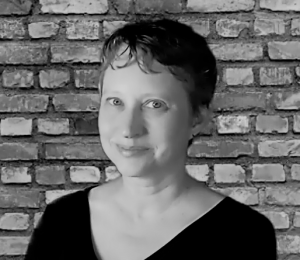 Andrea Hussong
Andrea HussongAndrea Hussong, Professor,Psychology and Neuroscience
Dr. Hussong is praised for her incredible dedication to undergraduate teaching, mentoring, and advising. One of her big successes is her Psych518H class in which students develop digital tools—including an app that involves virtual reality—for youth development and which is especially geared towards improving their mental health. Due to her own dual role as professor and clinical psychologist, lots of students seek out her career advice, which she generously provided, even though there is not part of her official job. She also played a big role in the development of the new IDST101: College thriving course.
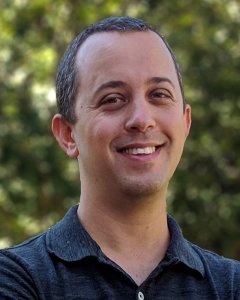 Shahar Kovalsky
Shahar KovalskyShahar Kovalsky, Assistant Professor, Department of Mathematics
Dr. Kovalsky is described as the most popular teacher in the Mathematics department, who is able to combine humor and innovative teaching methods with carefully constructed course content and examples, often drawing from applied mathematics, to effectively teach students parts of math they often struggle with, such as linear algebra or optimization. His large lecture courses are always full, and so are his office hours. Dr. Kovalsky is praised for his approachability and for his genuine care for students, especially those dealing with personal hardships, and for supporting undergraduate math initiatives on campus.
Tanner Award for Excellence in Undergraduate Teaching by Graduate Teaching Assistants
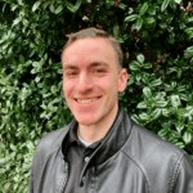 David Stilwell
David StilwellDavid Stilwell, Department of Physics
David Stilwell’s passion for physics and dedication to teaching have a significant impact on his students, helping them persevere through challenges and inspiring confidence in their abilities. He fosters a supportive, inclusive, and engaging learning environment, tailoring his teaching to individual needs and ensuring every student feels valued. Through his enthusiasm, personal attention, and encouragement, David has transformed an 8 AM physics studio into a source of motivation and growth, positively altering the academic trajectories of his students. As one student put it, “David Stilwell exemplifies what it means to be a Tar Heel … While his feet may not be covered with tar, he is unrelenting in his desire to see his students succeed.”
 Joseph Tanner Bourne
Joseph Tanner BourneJoseph Tanner Bourne, Department of Romance Studies
Tanner Bourne’s exceptional teaching have inspired his students’ attitudes toward learning French, replacing anxiety with confidence and enthusiasm. He creates a welcoming, inclusive environment where students felt supported, encouraged, and empowered to participate and grow. Through his innovative teaching methods, cultural integration, and personalized feedback, Tanner ignites a passion for French in his students, inspiring them to continue learning beyond their required coursework. Tanner’s multiple nominees spoke consistently about his commitment to student learning. As one said, “he changed the way that I interact with learning new languages. He made me understand that learning a language does not have to as hard as people seem, but if you dedicate yourself to learning a little every day before you know it you will be fluent.”
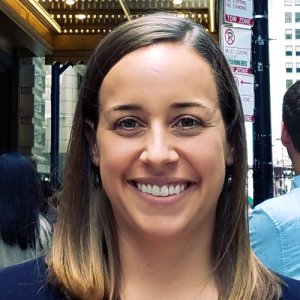
Dianne Mann
Dianne Mann, Public Health
Dianne Mann’s teaching makes anatomy accessible and inspires her students to think critically and connect course material to real-world scenarios. By integrating problem-based learning exercises and case studies, she pushes students to move beyond memorization, fostering a deeper understanding of anatomy’s interdisciplinary applications. Her teaching style sparks intellectual curiosity and a passion for lifelong learning. As one nominee remarked, “her infectious enthusiasm, coupled with her use of storytelling, humor, and relatable examples, makes the material come alive.” Dianne’s ability to blend rigor with inspiration leaves a lasting impact on her students, making her a worthy recipient of a Tanner Teaching Assistant Award.
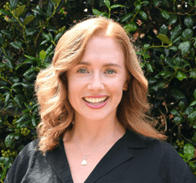 Clare Byers
Clare ByersClare Byers, Department of History
Clare Byers’s teaching of the history of Victorian Britain has galvanized her students’ understanding of history’s relevance to the modern world. Through her engaging teaching style and thoughtful feedback, she inspires intellectual curiosity and creates a welcoming environment where all voices felt valued. As one student expressed, “She taught in a way that allowed students like me to put our input and feelings into the course material,” making history both personally and globally relevant. Beyond academics, Clare’s kindness and understanding deeply resonate with her students, modelling what it means to be an educator who cares. Her influence extends far into students’ futures, inspiring them to pursue new academic interests and even consider how history shapes their career paths. As one student reflected, “Although I currently want to be a lawyer, this class showed me that History has a place in my heart that will not go away.”
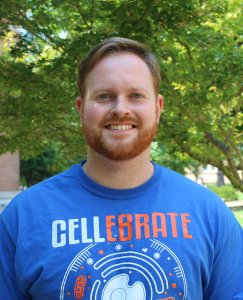 Andrew Lyons
Andrew LyonsAndrew Lyons, Department of Mathematics
Andrew’s engaging and intuitive teaching style ignites his students’ interest in discrete mathematics. By structuring the course in a logical sequence, providing ample examples, and offering extensive resources, Andrew ensures his students’ success and fosters their interest in the subject. Even when faced with repetitive or challenging questions, Andrew demonstrates patience and professionalism, addressing every query with care and ensuring no student feels left behind. With office hours four times a week and prompt responses to emails, he makes himself exceptionally accessible. As one student reflected, “I loved Andrew’s class so much that I’ve been considering a math minor because of it.” His enthusiasm for the subject and dedication to his students leave a lasting impression on students’ academic and personal journeys.
Past Teaching Awards Recipients
Past awards University Teaching Award recipients may be found on the Center for Faculty Excellence website.